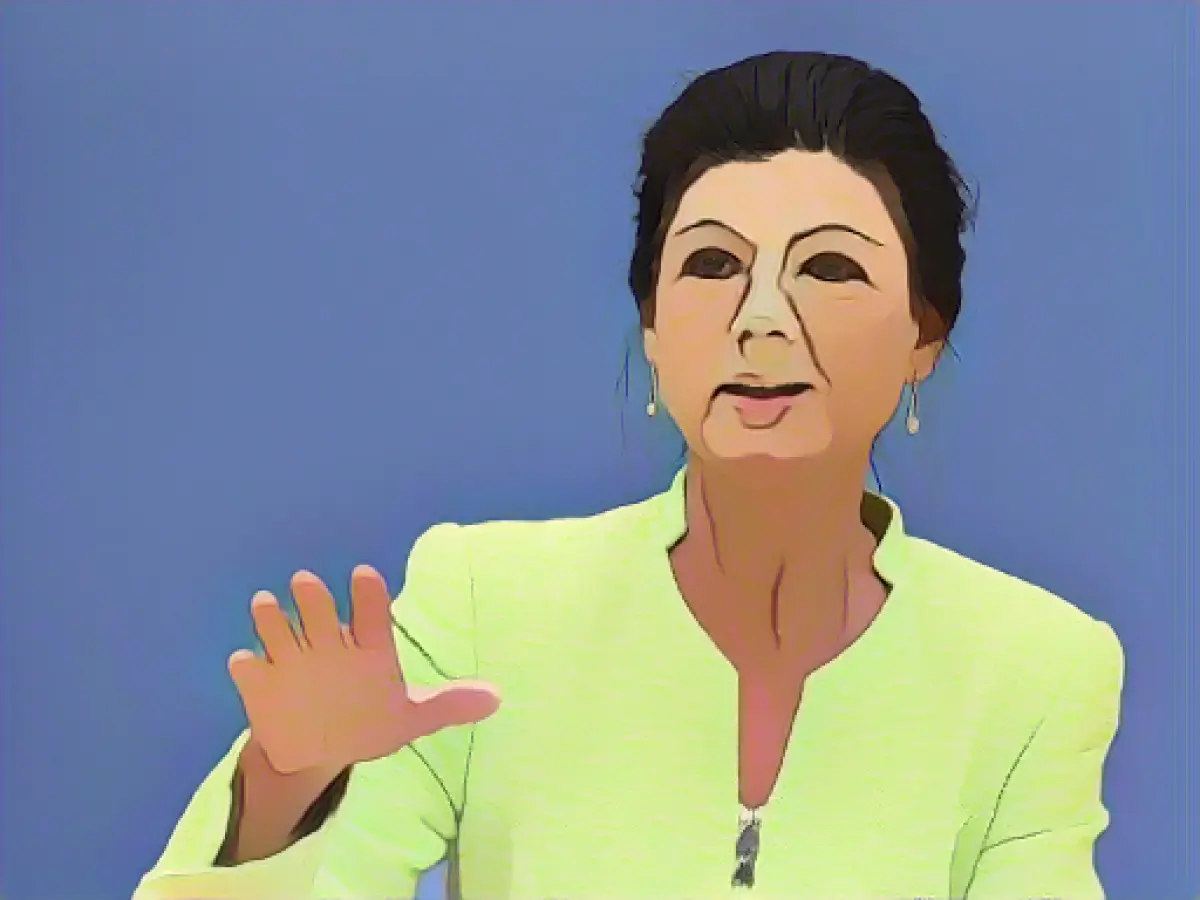In her pursuit to establish her own party, ex-Left Party politician Sahra Wagenknecht reckons she's amassed a substantial sum, surpassing the 100,000 euro mark yet falling short of the million-euro milestone. She shared this during an interview with German Press Agency, stating with a hint of pride, "I'm well over 100,000, but not quite a million." Wagenknecht also dismissed any suggestions of Russian funds funding her endeavor, assuring meticulous checks would ensure no such shenanigans.
Critics have often cast doubt upon Wagenknecht's trajectory, pegging her as close to Vladimir Putin's political agenda, with CDU deputy leader Andreas Jung leading the chorus. Wagenknecht, however, has consistently rejected these accusations vociferously. Allegations of Russian financial support for European opposition parties, such as the French Rassemblement National, and recent cases of high Russian payments to German journalists, have only served to fuel this debate.
In the face of such scrutiny, Wagenknecht stand firm, declaring that no one has ever offered her money from Russia. "I wouldn't sell my soul to an American, Russian or Saudi company for that matter," she asserted, reinforcing her conviction that politics isn't a marketplace for financial favors.
Wagenknecht's ultimate goal remains to garner a significant impact in the European elections, aiming to secure double-digit votes according to recent polls. "If we manage to maintain our current polling strength in the European elections, I'm confident the traffic light coalition will reconsider its policies," she said, lambasting the government for overlooked public interests.
A recent poll conducted by Insa research institute for "Bild am Sonntag" indicates that if her party, Bündnis Sahra Wagenknecht, were to win in the German federal elections, it would garner an impressive 14 percent. Wagenknecht's economic and social policies, centered around higher unemployment and pension insurance benefits, are at the heart of her party's appeal.
Criticizing the citizen's income initiative introduced in January, Wagenknecht deems it an ill-advised approach. She proposes better protection for older workers via unemployment insurance, instead, and encourages active job-hunting among young people. Wagenknecht is also a proponent of direct democracy, suggesting surveys to gauge public opinion on pension systems.
She advocates for a pension system similar to Austria's, where a larger population contributes a significantly higher percentage. However, this would mean substantial additional pension contributions every year. Wagenknecht's new party, BSWW, has gained considerable financial support, bolstered by hundreds of thousands of euros in donations, according to Wagenknecht herself.




